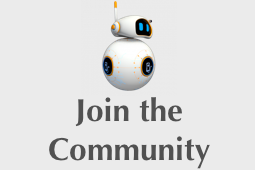Personalized Learning Platforms: A Case for Slow and Steady Product Development?
There is a widely-held belief in software development: fail early and often, then rapidly iterate on your product thereafter. In the field…

There is a widely-held belief in software development: fail early and often, then rapidly iterate on your product thereafter. In the field of K-12 education, this guiding tenet is not easily followed, and for good reason. The end-users of the product are not well-informed adult consumers with the luxury of time, choice, and money like with any other SaaS company. Instead, the users are students, ages 5–18, whose classroom time is ever-diminishing, whose schooling options are limited, and whose purchasing decisions are made by authority figures (read: school administrators) several layers removed from the actual learning process. The ethical and risk issues related to this conundrum of testing software on young students are well-known.
Despite this, many of the tried-and-true software development tenets are still being used in the field of personalized learning, most of the time to mixed results and controversy. The initial investment in the development of said technology is so high and the consequences of failure so great, it is just hard to stay consistent with these methods. “Failing fast” is not a concept to which educators or students would be primed to listen, nor is it something that would build trust for new personalized learning platforms. Look no further than AltSchool or Summit Learning for the hurdles that must be encountered for ed-tech companies trying to bring innovation to K-12 education.
Trending AI Articles:
1. Face recognition: realtime masks development
2. Deep learning for sensor-based human activity recognition
3. How to build a deep learning server based on Docker
4. How to Prevent Bias in Machine Learning
So, how do you test and deploy software in a meaningful, efficient way without alienating or compromising your customers? This issue is also not a new one. The health care sector is also faced with similar questions in terms of testing and rolling out patient care in the form of medical devices or new medication. What product development methods can be utilized in a way that builds trust and adoption while also providing relevant product feedback?
- Small-batch testing. Having a small group of early-adopter, risk-neutral parents elect for their children to use a personalized learning platform is an important step in this entire process. What will not work at scale is using children as guinea pigs, which is something that has backfired on many education startups. Instead, engaging parents as the arbiters of your technology will be a move to secure customer relationships and build trust.
- Low-cost prototypes. Developing a machine learning, adaptive software for a personalized learning platform that works will take a significant amount of resources. Finding ways to not only bridge the gap in terms of product development but also a low-cost method of getting a prototype out in the market is essential in a personalized learning platform.
Many of the existing platforms have utilized the above strategies. The next big hurdle that ed-tech providers face is developing a go-to-market strategy for selling to schools. Sometimes the roll-out of successful pilot programs leads to follow-on sales opportunities, but there are other strategies to ease schools into investing in ed-tech:
- Robust customer service. A well-developed customer success team that partners with Technology Directors at the school level, onboards teachers onto the platforms, troubleshoots with administration, and then reports back to product management and engineers, will do wonders for a personalized learning platform
- Teacher employees. Hiring teachers to support in product development is imperative. Too many times in education are technology solutions developed by people far too removed from the classroom — it results in a lack of effectiveness in the product and a lack of empathy for the people using the product.
- One-stop shop. Bring the curriculum, the professional development, and the support. Make it so that schools can rely on you for more than just your technology. As Max Ventilla, Founder and CEO of AltSchool, put it in a recent Forbes article: “We’re not just selling software…We’re selling a replacement for the curriculum schools have to buy. We’re selling professional development.” It is a worthwhile strategy to pursue, especially if you can prove your software brings results.
Less typical solutions that should also be considered:
- Effective and efficient pilot programs. Lowering the initial investment for schools and reducing any potential switching costs from existing platforms is a great way to get your foot in the door. To do so, offering low-cost sampling techniques like a very well-run pilot program could be a great solution. This could be created by product marketing teams or by customer success teams, depending on the structure of the organization.
- Insurance in case the program fails. If the platform is going to be truly incredible, there should be a flexibility for the customer if it fails to meet expectations. On the marketing and pricing side of things, offering a warranty or buy-back program for early experiment failures would go a long way in building trust with potential future users.
Personalized learning, in the form of adaptive, artificially intelligent software that meets students where they are, has broad implications for the way future generations will learn inside or outside of a classroom. Providing education credentials based on competency rather than seat-time will become the norm and will serve as a new wave of public education in this country. However, the new technologies need to adapt to school climates and cultures as well as to curriculum changes. Looking ahead, ed-tech providers will need to work even harder with schools to meet these challenges.
As a former educator turned technologist, I am passionate about managing products and developing strategic partnerships for technology organizations that seek to enhance learning experiences. Feel free to reach out to me via e-mail to continue the discussion.
Don’t forget to give us your 👏 !



